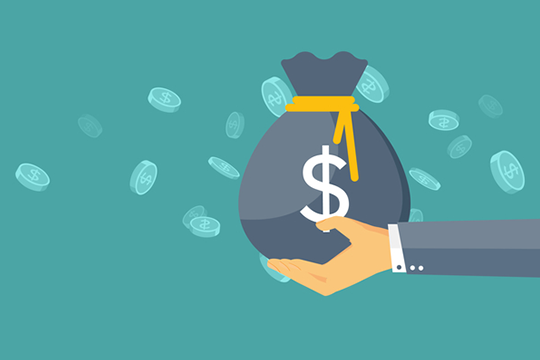Between your monthly bills, daily necessities, and the little things you buy along the way, it can be difficult to know where all your money goes. If more cash seems to be going out than coming in, a great way to get control is to set aside some time to calculate your expenses.
- Expenses refer to costs incurred in conducting business. Technically, expenses are 'decreases in economic benefits during the accounting period in the form of decreases in assets or increases in liabilities that result in decreases in equity, other than those relating to distributions to.
- See full list on corporatefinanceinstitute.com.
- Because accrued expenses represent a company's obligation to make future cash payments, they are shown on a company's balance sheet as current liabilities; accrued expenses are also known as.
Expenses refer to the costs incurred by enterprises so that they can gain revenue. Some of the costs include salaries, utilities, transportation costs, and depreciation expenses. Other differences between expenditure and expenses include implications on financial statements, tenure, number of times incurred, purpose, and anticipation.
If you take the process step-by-step, it can be surprisingly easy to find out how you’re spending your money. Here's how:
- Gather your financial statements. These documents, such as bills, mortgage statements, and account statements, can help you see exactly where your money is going. Looking for charges you make regularly can help you determine your largest expenses.
- Create a list of monthly expenses. While this includes your recurring living expenses, such as your rent or mortgage, car payment, and utilities, it also includes the more variable amounts you spend on haircuts, groceries, and clothes each month.
- Examine your expenses. To find patterns in your spending, try organizing your purchases in an expenses worksheet. Free online tools, such as My Spending Report, can automatically track your spending to give an overview of your finances. You might want to distinguish between different types of expenses, potentially highlighting each in a different color. Consider separating your expenses into the following three categories:
- Fixed expenses: These are the necessary expenses that remain the same each month, including your rent, car payment, and insurance. You generally need to make big changes in your life to impact these expenses, such as trading in your flashy ride for something more economical.
- Flexible expenses: These are the necessary expenses that vary each month, including your utilities and weekly grocery bill. You can lower these expenses by changing your habits. For example, turning down the heater by a degree or two in the evening or using coupons for your purchases can help decrease these flexible costs.
- Discretionary expenses: These are personal expenses where you have more control over what and how much to spend. This category can include trips to the coffee shop, nights out at the movies, and trips to restaurants with friends. If you eat out three times a week with your family or friends, you could save hundreds of dollars each month by eating at home or moving these gatherings to someone’s house.
Expenses Definition
Tip
Expenses

Taking time to really think through these expenses, and how to decrease them, is the first step toward managing your budget. Once you get your spending in check, you can begin to make big financial plans for the future – and feel confident about making them a reality.
Related topics:- Basic Finances,

Skip
/how-to-make-a-budget-1289587-Final2-updated-17bbe4528d38430ca42f4138f599ed56.png)
Correct!
False. Dining out is a discretionary expense because you could easily live without it.
Incorrect.
False. Dining out is a discretionary expense because you could easily live without it.
Empower yourself with financial knowledge
We’re committed to helping with your financial success. Here you’ll find a wide range of helpful information, interactive tools, practical strategies, and more — all designed to help you increase your financial literacy and reach your financial goals.
Products to Consider

LRC-0520
